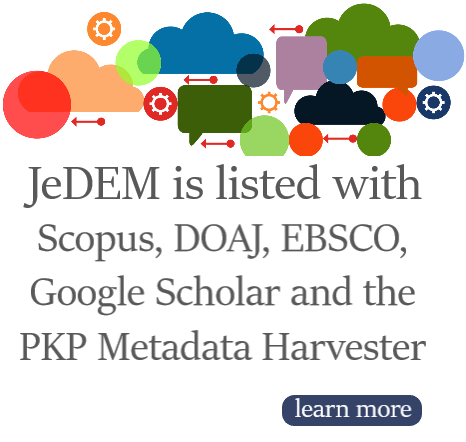Sustainable E-Participation through participatory experiences in education
DOI:
https://doi.org/10.29379/jedem.v2i2.37Keywords:
e-participation, e-democracy, sustainability, participatory culture, political education, pedagogy, ICTs, new media literacyAbstract
The understanding of participation as a political matter has changed back and forth over the years. The latest twist back to appreciative attributions towards participation is fuelled by the development of the Internet, and especially the Social Web. Citizen participation is unanimously seen as an essential precondition for Deliberative-Collaborative eDemocracy (Petrik, 2010) enabled by Web 2.0. This paper considers participatory culture and its specific political, cultural, societal, and educational characteristics as a prerequisite for e-participation and argues that social media literacy is indispensable for e-participation to be sustainable. Young people’s affinity spaces (Jenkins, et.al., 2006) can only lay down the foundations for social media literacy, but their further development depends on education. Political Education would be well advised to adapt innovative pedagogical approaches to the acquirement of new media literacy. This paper introduces an exemplary educational tool – predominately but not exclusively for political/civic education – namely the website PoliPedia.at. Teachers can use it to deliberately create a balanced space for collaboration between Digital Immigrants and Digital Natives. PoliPedia – as a participative online tool – has the potential to facilitate participation experience in political/civic education and supports social media education. Thereby the embedding of technology in pedagogical and societal conceptualizations is crucial.Downloads
Metrics
Downloads
Published
How to Cite
Issue
Section
License

JeDEM is a peer-reviewed, open-access journal (ISSN: 2075-9517). All journal content, except where otherwise noted, is licensed under the CC BY-NC 4.0 DEED Attribution-NonCommercial 4.0 International













